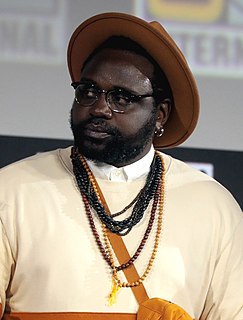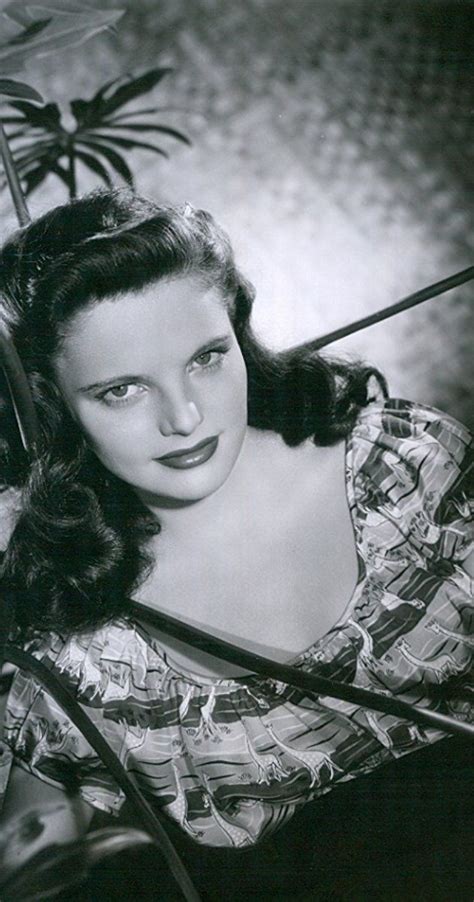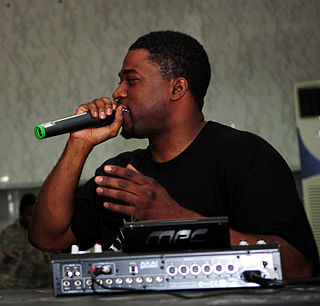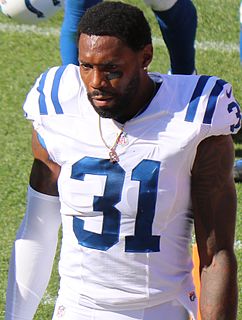A Quote by Brian Tyree Henry
I think that's the best thing about being black is that we find a way to make our own communities and always give room for people to pull up to our tables. We always provide a way for other people from different walks of life to come into the communities that we have built because we're so used to being excluded.
Related Quotes
Every community has crime and violence; it's a part of being human. This idea that black communities are more violent than others is just false. But black folks fight the hardest for our communities. Before governments do, before other people do, we're the first ones to show up. We are the first ones to fight for our lives.
One of the things we learned from that panel is the way poor communities use a library is very different from wealthy communities. But the way the library books are measured are by how many books are taken out. And people in poor communities sometimes won't take the book out because they're afraid to. They're afraid of losing it and not being able to replace it.
Most people would say they live with an internal angst that they can't always put their finger on. This is because the Internet has changed our very way of being in this world, compelling us to be perpetually "on" - from our cars to our computers, our tablets to our smartphones, our desks to our living rooms or dining tables, our churches to our libraries to our schools.
I think that we need to begin talking about what does it mean to create these safe spaces in our communities, to begin welcoming one another into our homes and into our communities when they're returning home from prison, people who are on the streets. We need to begin doing the work in our own communities of creating the kind of democracy that we would like to see on a larger scale.
It's wonderful to work for a company that gives so much back to its communities, especially to our children. Donations are only one way we support our communities. Our team members also volunteer their time and energies to a number of different local groups, including this aquarium. We form partnerships with these organizations because we feel we can accomplish more together than if we were each working on our own.
I think that most of us, anyway, read these stories that we know are not "true" because we're hungry for another kind of truth: the mythic truth about human nature in general, the particular truth about those life-communities that define our own identity, and the most specific truth of all: our own self-story. Fiction, because it is not about someone who lived in the real world, always has the possibility of being about oneself. --From the Introduction
We can't keep begging or expecting people to give us an opportunity to make a movie or to represent our culture in the right way. They're not from or neighborhoods and communities so of course they can't truly relate to our experience. It's our responsibility to properly protect our people and to properly give them opportunities for employment.
It is often said that education and training are the keys to the future. They are, but a key can be turned in two directions. Turn it one way and you lock resources away, even from those they belong to. Turn it the other way and you release resources and give people back to themselves. To realize our true creative potential-in our organizations, in our schools and in our communities-we need to think differently about ourselves and to act differently towards each other. We must learn to be creative.
Mass incarceration is a policy that's kind of built up over the last four decades and it's destroyed families and communities, and something we need to change. And it's fallen disproportionally on black and brown communities, especially black communities, and it's kind of a manifestation of structural racism.
Until White America can look through the eyes of a Black man, nothing will change. Even we as Black people sometimes don't want to face what's going on within our communities because some of us crossed over into a different tax bracket, but these issues affect the communities that raised us, so it affects us all.
I think one of the core ideas in America has always been conversation and being able to question our systems of government, and being able to dictate our own communities and how we want this country to work. And I feel like we're losing part of that because of the way that even our current political campaign is centered more around celebrity than anything else, and so we're kind of losing conversation. We're still having conversations, but they seem to be more about like Donald Trump's hair and like memes of his face more than anything else.




































